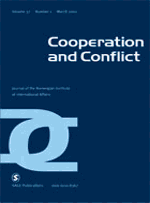In this article, I explore the relationship between ‘value’ and ‘security’ in the conceptualization of European construction and its transformation in recent years through the anti-terror effort. I suggest that the landscape of human values, and the way it is correlated with security, is discontinuous and fragmented. In the post-Madrid/London era, variations in cultures of law enforcement, border control, intelligence and diplomacy, and, not least, new cultures of fear and prudence, render this landscape increasingly complex. The value-laden nature of security and insecurity has contributed to a fragmented evolution in European approaches to the challenge of security. The politics of harmonization and standardization of European security reveals not a singularity in security, but the contrary, namely multiple securities. I thus develop a counter-argument to both realist and social constructivist understandings of values and the role these play in security thinking. I affirm, in a typical constructivist vein, that values matter in the formation of security policy. However, I reverse the typical constructivist position that sees security as the embodiment of ideas, arguing instead that the European self-understanding is itself the product of its own constellation of security and insecurity.
Burgess, J. Peter (2009) There is No European Security, Only European Securities, Cooperation and Conflict 44 (3): 309–328.







